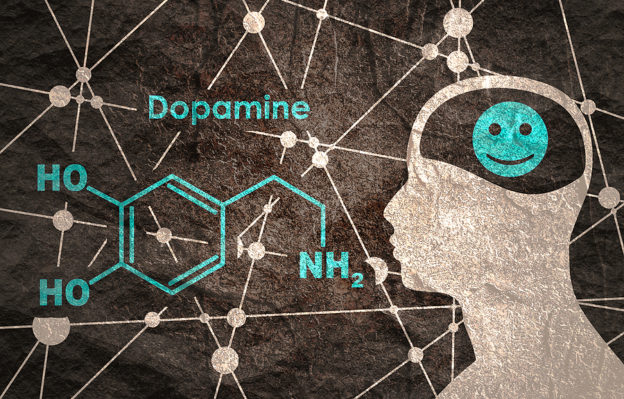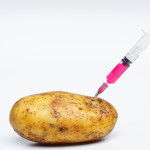By David Blyweiss, M.D., Advanced Natural Wellness
July 6, 2020
I hear a lot of wacky things in my practice. And I pride myself on keeping a straight face no matter what.
But the other day, I almost lost my composure…
You see, one of my patients told me she wasn’t feeling very happy with life. She complained of not feeling focused and motivated lately.
So, she looked at me with a concerned, serious face and asked:
“Do you think a dopamine fast would help?”
This woman caught me completely off-guard. It took everything I had to maintain a straight face.
So, what the heck is a dopamine fast anyway?
Well, it’s one of those silly ideas born out of California’s Silicon Valley. The concept went viral and people all over started taking it quite seriously.
People claim it works by resetting your brain so you can feel more pleasure, joy and focus in life.
The general idea is this… Every time you participate in an activity that increases dopamine, you’re raising the bar. You’d need to get even higher levels of dopamine the next time to feel similar levels of pleasure.
How do you fix it?
Despite a single shred of scientific evidence, dopamine fasters claim you should stop all pleasurable activities to reset your brain.
How crazy is that?
This means no foods that make your taste buds hum. No lingering kisses or stimulating bedroom activities. No TV or lively music. No joking or smiling. No exercise.
Then, once you’ve completed your “fast”, lower levels of stimuli will trigger your brain’s pleasure center to make you happier. You’ll be more emotionally balanced and more effective in your daily pursuits.
Are You Suffering From...
- Love handles and a pot belly
- Romance that isn't what it used to
- Forgetfulness and inattention
- Low (or no) strength and endurance
- A sex drive that's shifted into neutral...or worse
If so...you may have Mature Male Burnout. Click here to discover more about this unique condition and what you can do about it.
Sorry to burst the bubble, but that’s just not how it works!
It’s not like insulin or leptin resistance, where your body starts ignoring cell signaling. There is no such thing as “dopamine resistance”.
Here’s what really happens…
Each time you experience something pleasurable, your body releases dopamine. It attaches to receptors and sends a message to other brain cells. Since this is one of your “happy hormones” it triggers feelings of pleasure and satisfaction.
Once the message is received, the dopamine is sent back to its home base and reabsorbed for later use – until the next time you experience a great moment.
It’s pretty much a closed system. And unless you are using illicit drugs or depriving yourself of foods that act as dopamine precursors, it works extremely well.
Why You Should Always Keep Your Dopamine Receptors in the ON Position
Dopamine is the “happy hormone,” so I want a lot of it. And you should too. There’s not a single reason why anyone should want to blunt it (even if they could.)
It’s necessary to your nervous system and acts as a motivator. And it plays a big role in your emotional well-being.
Instead of trying to stomp it down, I recommend INCREASING your dopamine levels as much as possible. Here are some things to try:
- Certain foods like fish, seeds, nuts, beans and lentils are rich in tyrosine, which is a precursor to dopamine. Enjoy all of them.
- Exercise, music and a good night’s sleep also contribute to your dopamine stores.
- Supplementing with resveratrol protects your dopamine neurons against inflammation and toxicity.
- Enjoy healthy fats like avocado, olive oil and nuts that support healthy dopamine levels.
- Drink green tea. It’s loaded with L-theanine. This major amino acid is uniquely found in green tea and increases levels of brain dopamine.
- Add a curcumin supplement. This spice modulates the release of dopamine and acts as an anti-depressant.
Remember, there are many things available which are proven to work for your best health. They let you enjoy a full and rich life. And a “dopamine fast” is just not one of them.
SOURCES:
Zhang F, et al. Resveratrol protects dopamine neurons against lipopolysaccharide-induced neurotoxicity through its anti-inflammatory actions. Mol Pharmacol. 2010 Sep;78(3):466-77.
Briguglio M, et al. Dietary Neurotransmitters: A Narrative Review on Current Knowledge. Nutrients. 2018 May; 10(5): 591.
Nathan PJ, et al. The neuropharmacology of L-theanine(N-ethyl-L-glutamine): a possible neuroprotective and cognitive enhancing agent. J Herb Pharmacother. 2006;6(2):21-30.
Kulkarni SK, et al. An Overview of Curcumin in Neurological Disorders. Indian J Pharm Sci. 2010 Mar-Apr; 72(2): 149–154.







